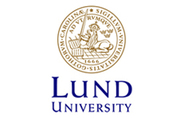Research Area
Overall, the project aims to bridge the gaps between comparative
politics and IR, and between the study of political thought and positive
empirical political science. The research program is divided into several research projects with different objectives. Read more about the projects here.
All of the research projects are built around the following three research themes, common for the research program:
(1) How did the different dimensions of state-making, including internal and external sovereignty, revenue extraction, professionalization of the bureaucracy and the development of infrastructural capacity, evolve and interact during this time period? What actors and organized interests supported or put up resistance to these processes?
(2) How were these dimensions of state-making affected by geopolitical competition, warfare and the diffusion of novel political technologies?
(3) What were the consequences for the international system, both with respect to the type of state that emerged and what entities were granted membership in the state system?
All of the research projects are built around the following three research themes, common for the research program:
(1) How did the different dimensions of state-making, including internal and external sovereignty, revenue extraction, professionalization of the bureaucracy and the development of infrastructural capacity, evolve and interact during this time period? What actors and organized interests supported or put up resistance to these processes?
(2) How were these dimensions of state-making affected by geopolitical competition, warfare and the diffusion of novel political technologies?
(3) What were the consequences for the international system, both with respect to the type of state that emerged and what entities were granted membership in the state system?
Common Empirical Strategy
The program will encompass several different methodologies and approaches, but there will also be a least common denominator. The first component of this common empirical strategy is a common temporal focus on the long 19th century (the period from the American, French, and Haitian revolutions to the onset of the First World War). The second common component of our empirical strategy is a large-n study of European state leaders and ministers of foreign affairs, including their entourages and advisors. The third component of our common empirical strategy is therefore a mixed-methods approach, complementing the quantitative database with qualitative case studies. The preliminary cases that will be investigated are: Britain (colonial empire that contracted); the US (imperial/colonial power that expanded); Germany (a system of statelets and city-states that united); and Sweden (a national state that, with the exception of the loss of Norway, remain largely intact).
In-House Program at Lund University
|
This research program is organized as an in-house, long-term research environment at the Department of Political Science, Lund University. For many years, the study of international relations has been one of the department’s main strengths. As the result of a rapid expansion in the last years, however, the department is nowadays also the home of a strong group of scholars of comparative politics. The team of researchers brought together in this program is the result of an intellectual encounter between these two research traditions.
|


